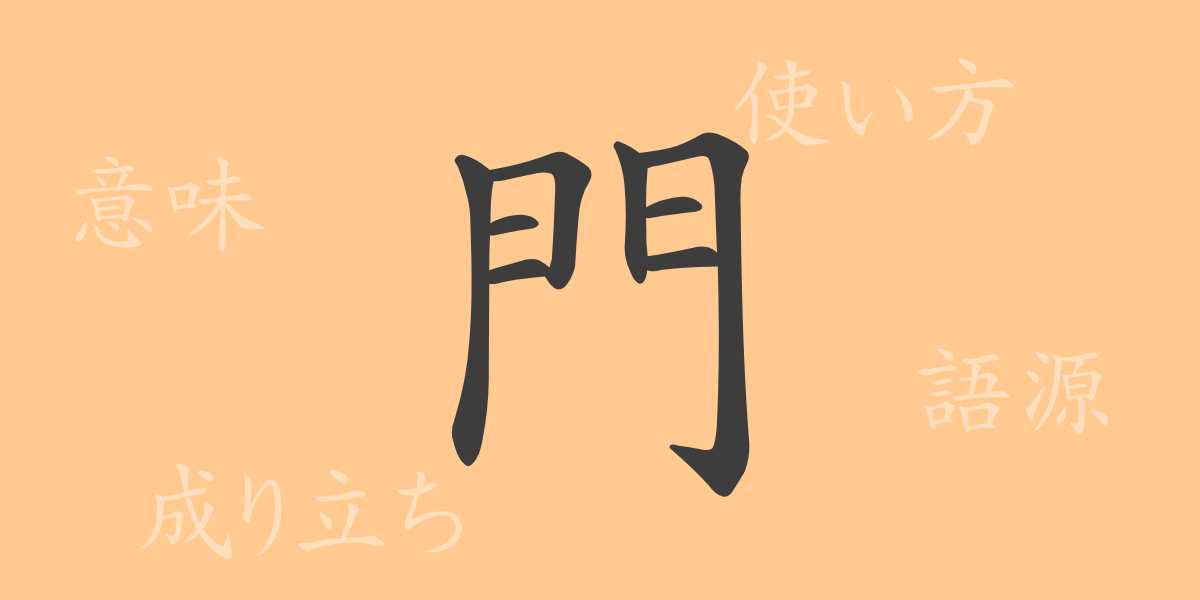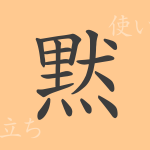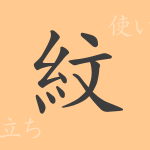Kanji (かんじ), deeply rooted in Japanese culture, each carry their own unique history and meaning. The commonly used kanji “門” (もん, mon) is no exception. In this article, we will unravel the origins, meanings, usage, readings, and even idiomatic expressions and proverbs that include “門”. Join us in exploring the depth of the Japanese language and the rich world encapsulated in a single kanji.
Origins of 門 (もん, Mon)
The kanji “門” (もん, mon) can be traced back to ancient Chinese oracle bone script. In oracle bone script, “門” (もん, mon) represented an actual gate or an enclosed entrance, symbolically depicting two doors closing together. This shape evolved over time to become the kanji “門” (もん, mon) that we use today.
Meaning and Usage of 門 (もん, Mon)
Literally, “門” (もん, mon) means the entrance to a house or building. However, its usage extends far beyond that. Metaphorically, “門” (もん, mon) can refer to fields of study as in “学門” (がくもん, gakumon) or to secrets and techniques that must not be leaked as in “門外不出” (もんがいふしゅつ, mongaifushutsu). Its applications are diverse and far-reaching.
Readings, Stroke Count, and Radical of 門 (もん, Mon)
The kanji “門” (もん, mon) has multiple readings in Japanese, used according to context.
- Readings: In on’yomi (音読み), it is read as “モン” (もん, mon). In kun’yomi (訓読み), it can be read as “かど” (かど, kado) or “と” (と, to).
- Stroke Count: “門” (もん, mon) has a total of 8 strokes.
- Radical: The radical for this kanji is 門部 (もんぶ, monbu).
Idiomatic Expressions, Proverbs, and Compounds with 門 (もん, Mon)
Compounds, idiomatic expressions, and proverbs containing “門” (もん, mon) are widely used in the Japanese language. Here are a few examples:
- 学門 (がくもん, gakumon): Refers to the field or domain of study.
- 門外漢 (もんがいかん, mongaikan): A person who is not an expert or is unfamiliar with a particular field.
- 門前の小僧習わぬ経を読む (もんぜんのこぞうならわぬきょうをよむ, monzen no kozou narawanu kyou wo yomu): A proverb meaning that one’s environment significantly influences them.
- 一門団結 (いちもんだんけつ, ichimon danketsu): The unity of a family or clan.
- 門を叩く (かどをたたく, kado wo tataku): The act of seeking an entrance or means to start something.
Conclusion about 門 (もん, Mon)
The kanji “門” (もん, mon) possesses a multitude of meanings and usages that go far beyond its simple form. In daily life, you may encounter “門” (もん, mon) frequently. However, through this article, understanding the historical and cultural background of “門” (もん, mon) allows you to appreciate the profound meanings embedded in each kanji. The journey to rediscover the richness of the Japanese language begins with passing through the “門” (もん, mon).

























